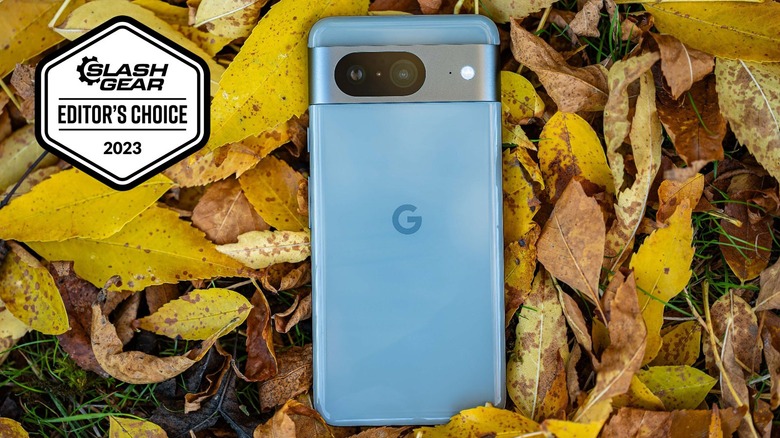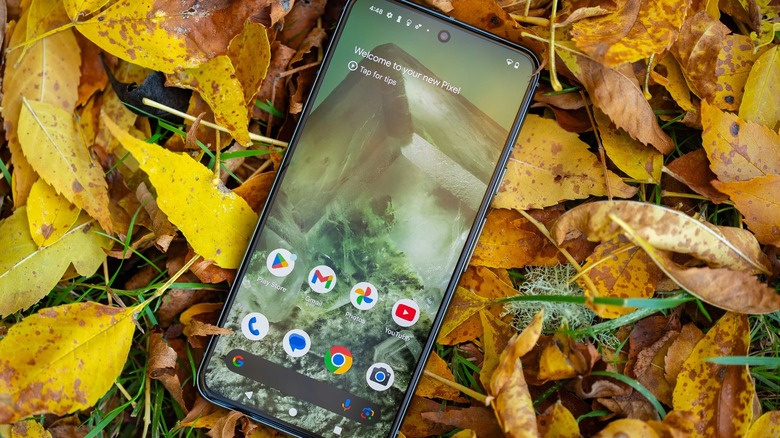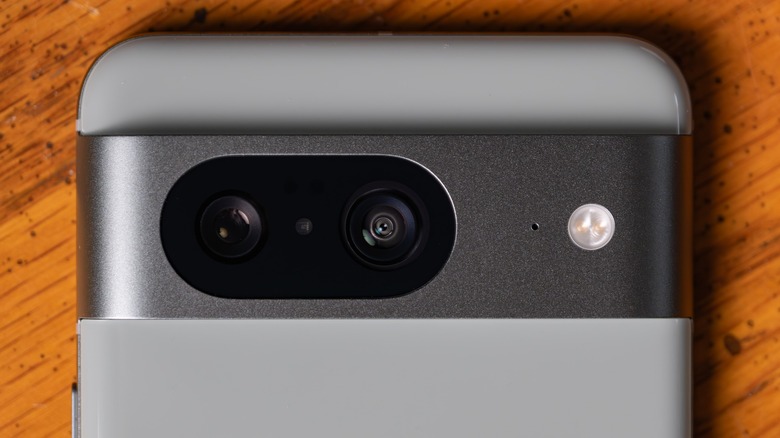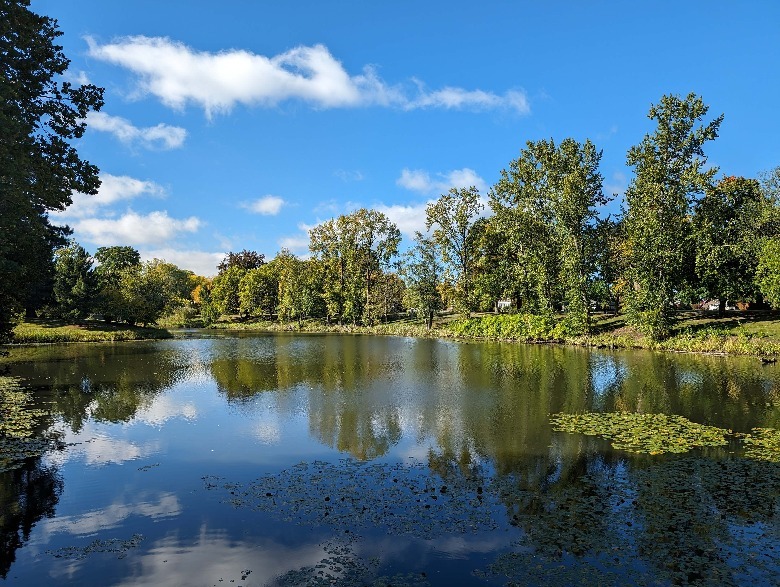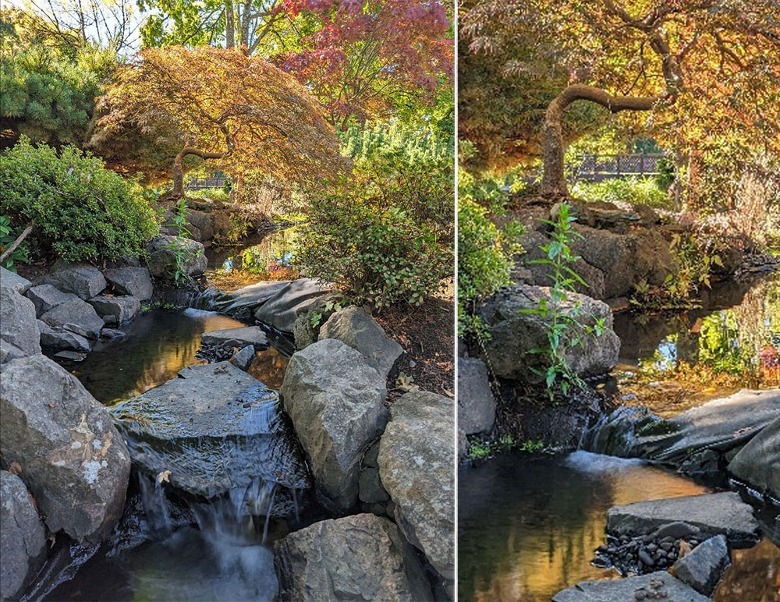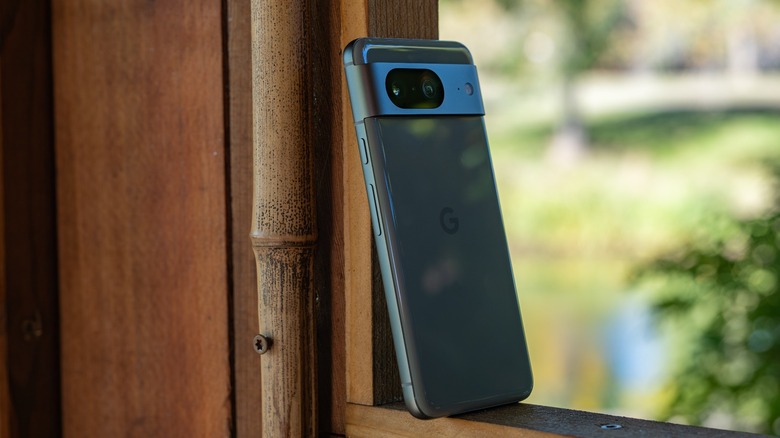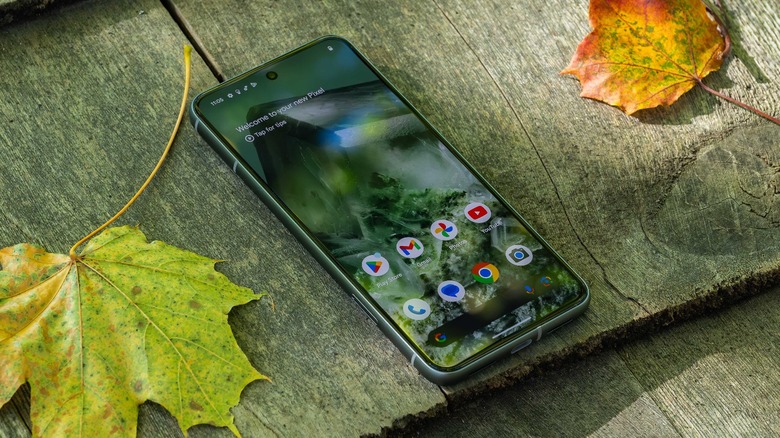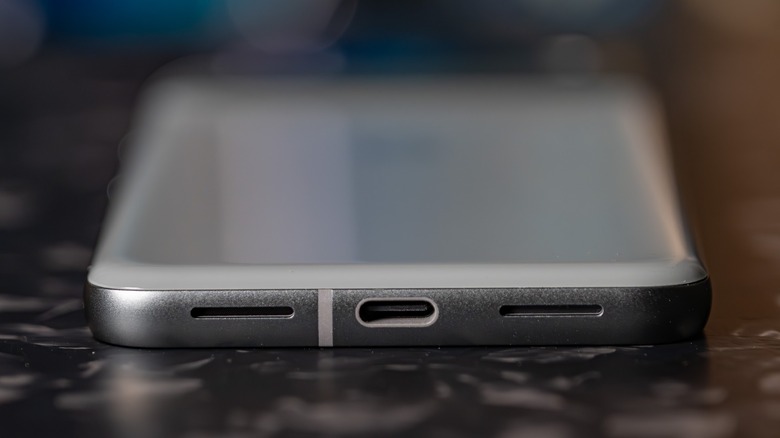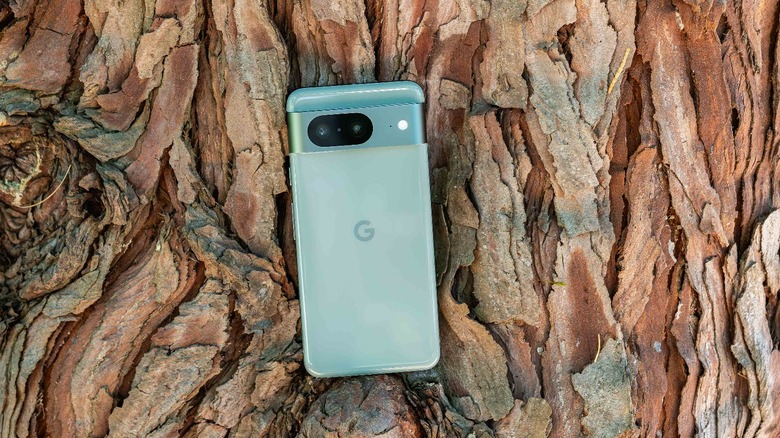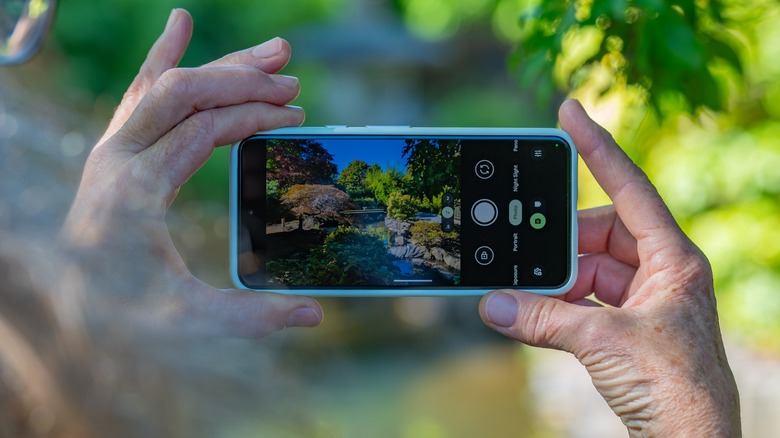Google Pixel 8 Review: A Serious AI Upgrade And A Price Bump
- Impressive photos
- Great video stabilization
- Excellent screen
- Good performance
- Powerful new AI features which are both fun and useful
- IP68 water resistance
- Google promises 7 years of security and OS updates
- No telephoto camera
- Boring color choices
- More expensive than its predecessor
The Google Pixel 8 launches into a perilous world of fierce competition. Smartphones are more competitive than ever, and with the boundaries of miniaturization being ever further strained, it becomes increasingly difficult for one manufacturer to gain a leg up on another. With the Pixel 8, Google has kept close to the outward design of this phone's predecessor, but under the hood, things have grown a whole lot smarter. This increase in intelligence is felt both in an increase in processing power and in the integration of some rather remarkable artificial intelligence (AI) features.
Google has also made some big claims about how much it apparently improved the camera on the Pixel 8, and with the camera already proving to be one of the highlights of previous Pixel phones, a big jump in photo quality would be an accomplishment indeed. Whether all this will be enough to lure Samsung and Apple users from their platforms — or to convince Pixel 7 owners to upgrade — is what we're here to find out
Google provided SlashGear with a Pixel 8 to test and review.
A familiar look
Visually, the Google Pixel 8 is very similar to the Pixel 7. Side-by-side, you'd be able to see that the camera bump is now a little larger, while the bezels have shrunk for a phone that's overall slightly smaller than its predecessor. The bezels are also symmetrical now, whereas before the lower bezel of the Pixel 7 was a little larger. Color options are pretty similar too, and just as lackluster as before — you can choose between hazel (grey), obsidian (black), and rose (light pink). As unexciting as these options are, hazel really looks pretty good, and most people are just going to immediately stick a protective case on it anyway.
The Pixel 8 is IP68 dust and water resistance rated, meaning that it can be submerged up to 1.5 meters in fresh water for up to 30 minutes, and the phone is entirely protected from dust. The front and back of the Pixel 8 are made of Corning Gorilla Glass Victus, with a matte aluminum frame around the edge. Google's claims regarding the fingerprint-resistant coating seem to be true, and the phone stays reasonably clean.
Android 14 on the Pixel 8 will also be a familiar experience to Android users, particularly those already used to vanilla Android on previous Pixel devices. Google promises an impressive 7 years of OS, security, and feature updates, so theoretically this phone could stick with you for a long time to come without becoming too badly outdated.
Outstanding dual-camera setup
Google's Pixel phones have long been known for their impressive imaging capabilities, but the Pixel 8 takes it to an entirely new level in terms of features and sheer image quality. Photos captured with the Pixel 8 are incredibly sharp with rich colors and well-controlled shadows and highlights — yet despite all the extra processing going on to achieve this, the results are remarkably natural.
The main camera features a new 50MP sensor, paired with a lens with an 82-degree field of view and an f1.8 aperture. Google claims this camera is 21% more sensitive to light than the main camera of its previous phone. While we did not have the Pixel 7 on hand to test this claim precisely, the Pixel 8's main camera does provide extremely good performance in low light, and overall image quality is extraordinary. Even photos taken in extremely low light at dusk turned out great.
The ultra-wide angle camera only has a 12MP sensor, but still produces great photos with a 125.8 degree field of view. It's really handy to have an ultra-wide camera. However, there's no telephoto camera in the Pixel 8, which is a serious limitation. While the digital zoom is really very good in this phone, it's not a replacement for a dedicated telephoto camera.
Among the extra features, we particularly loved the long exposure mode which allowed us to capture some really nice handheld shots of moving water. Action-pan mode also produced some fun images of moving subjects.
Impressive editing tools and video stabilization
On the video front, the Pixel 8 is just as accomplished as with still images. Capturing 4K at up to 60fps, footage is crisp with great color, and stabilization is remarkably effective. Footage captured while walking is stabilized to a degree comparable to an action camera such as the GoPro Hero 12 Black or the DJI Osmo Action 4.
Among the various available video modes, we particularly enjoyed using the pan mode, which allows you to capture smooth and stable panning shots. The results look fantastic, making the Pixel 8 ideal for quickly snagging some b-roll footage while on the go.
In terms of editing your photos and videos, the Pixel 8 has a great set of tools available built-in to Google Photos. It's not quite a replacement for Adobe Lightroom Mobile, but the object eraser tool can deliver impressive results in some scenarios, and for many people, the default software on the Pixel 8 will be more than enough for their photo and video editing needs.
The selfie camera has 10.5 MP, an f2.2 aperture, and a 95-degree field of view. It's a perfectly acceptable hole-punch-style camera set into the top of the screen, and it delivers decent results.
Fun with AI
Artificial intelligence is deeply integrated into the fabric of the Pixel 8, ranging from gimmicky and fun to extremely functional and useful. Being able to generate AI wallpapers is definitely on the fun and gimmicky side of the spectrum, but it's very entertaining indeed, and occasionally spits out some nice results. AI art can be problematic and contentious, but as an optional way to mess around and make some custom wallpapers for your phone, it's a harmless and positive implementation of the technology.
The ability to ask the Google assistant to summarize articles and read them back to you can be a nice timesaver, and could potentially be extremely helpful to those with disabilities. The Pixel 8 is also remarkably good at understanding your commands and is astoundingly accurate at taking dictation. In most of our tests, it was able to immediately and almost flawlessly transcribe an email as we spoke and even managed to recognize and type out "Supercalifragilisticexpialidocious." More impressive still, the speech recognition could tell who was speaking and ignore other people talking in the room.
Another particularly useful AI feature is the ability to better detect spam calls and screen calls in a more dynamic fashion by actually having a conversation with the person calling you. It's a bit like having a little secretary living on your phone. Additionally, the Pixel 8 is able to better filter out background noise and make your side of the call easier to understand.
Bright and colorful screen
The 6.2-inch OLED display of the Pixel 8 has a comfortable 20:9 aspect ratio and a resolution of 1080 x 2400 — that's 428 ppi. It's crisp, colorful, and sharp, which makes the device wonderful to use. With a peak brightness of up to 2000 nits, it's easy to use outdoors, even in the middle of an abnormally bright day in early October. It is great for enjoying content, thanks to HDR support and the rich darkness of the black levels it's capable of achieving. This compliments the photographic capabilities of the Pixel 8, as your photos look all the more impressive on this display. The 120Hz maximum refresh rate of the display makes navigation extremely fluid and satisfying.
The Pixel 8 display supports "always-on," "at-a-glance," and "now playing" functionality, so it'll keep you up to date with what's going on without having to fully power on and sign into the phone.
Snappy performance, great audio, and acceptable battery life life
With the new Google Tensor G3 processor and 8GB of RAM, the Pixel 8 is no slouch, and we never experienced any slowdowns while using the phone. Apps load fast, and the phone is generally a powerful, modern device. Capacity from the 4757 mAh battery seems to be OK; it's nothing to get excited about, but it should get you through the day. The Pixel 8 supports Qi wireless charging, battery share, and fast charging, and for connectivity, you get Wi-Fi 7, Bluetooth v5.3, NFC, and GPS.
In terms of audio, the speakers on the Pixel 8 are excellent, both for communication and for playing your favorite tunes. The stereo effect was quite satisfyingly pronounced when listening to "Ain't No Rest for the Wicked" by Cage the Elephant, and 2Cellos cover of "Thunderstruck" was rendered with as much of its wide tonal range as a phone can be expected to deliver. The much heavier and more chaotic "Riptide" by Beartooth had decent definition in its raucous instrumentals, and the crystal clear vocals of "Cruel Hearts" by Vistas rang out vibrantly.
The microphone array is great as well, and we really love how, when recording with the phone, you can later edit the audio and easily remove background noise.
Hiked up price
At $699 the Pixel 8 is $100 more than the Pixel 7 was at launch, which is a bit disappointing, particularly considering that your storage options remain the same with the base model — including 128GB of storage, or $759 for the 256GB model. That's unfortunate, but keep in mind that the competing Samsung Galaxy S23 and iPhone 15 are both $100 more expensive, so considering how competitive the Pixel 8 is with those phones, it's still a bargain by comparison. With that said, the continuing price-creep of phones is hardly something to be celebrated.
It's also worth noting that the most storage you can get in a Pixel 8 is 256GB. If you want more storage capacity, you'll have to shell out for the $999 Pixel 8 Pro. That phone also starts with 128GB, with the top-end 1TB model of the Pixel 8 Pro costing a whopping $1399. That makes the highest-capacity Pixel 8 Pro twice as expensive as the 128GB Pixel 8. However, given the significantly better camera system of the Pixel 8 Pro, the more serious photographers who will gravitate to that phone may well consider the extra capacity worth the cost.
Considering how much device manufacturers charge for a little extra storage, it makes us really miss the days when you could just pop a microSD card in your phone when you started running out of room.
Conclusion
The Google Pixel 8 is an absolutely fantastic mid-range smartphone, despite a few minor complaints. The camera in particular is an amazing upgrade from the Pixel 7, or indeed most other phones in general. The improvement in image quality is every bit as significant as advertised, both for stills and video. Every aspect of the phone is extremely polished, and the interface is smooth and fluid to operate thanks to the high refresh rate display, which is also bright and vibrant.
The Pixel 8 is the first phone to seriously tempt our long-time Samsung smartphone devotees on staff at SlashGear — even those that stuck with the same brand for nearly a decade. For the keen photographer, the camera is the main draw, but the AI-driven features of the Pixel 8 are surprisingly attractive as well. It's in this smartphone that we find AI implemented in a way that offers genuine benefits. AI appears far less of a dystopian menace when used for improving audio, taking dictation, or screening calls than when threatening to replace artists and authors.
The only big downside to the Pixel 8 is the fact that it's not the Pixel 8 Pro, which is a big step up in a number of key ways. Still, if you don't want to spend the extra $300, you won't be disappointed by the Pixel 8.
